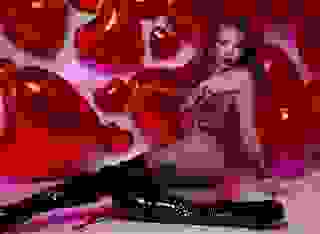Note: You can change font size, font face, and turn on dark mode by clicking the "A" icon tab in the Story Info Box.
You can temporarily switch back to a Classic Literotica® experience during our ongoing public Beta testing. Please consider leaving feedback on issues you experience or suggest improvements.
Click hereMichael, with his altruistic behavior, made the holier than thou evangelists look bad. Thumping their bible with one hand while reaching in their followers' pockets with their other hand, they enriched no one but themselves. Michael believed in God but he did not force his beliefs or the teachings of the Gospel down the throats of those around him, making them feel guilty if they did not get down on their knees numerous time of the day to pray. Instead, he showed them options and alternatives, always leaving the free choice to them, which path they wanted to take.
With the help of free and positive press, published stories, and televised spots paid by those who wanted to interview the guru of banking, Michael's noble activism and community spirit spread to other cities throughout the country and was copied in cities throughout the world. He was an inspiration, as to what can happen when you have someone dedicated to change for the better. Of course, it helped that he had unlimited resources, power, and influence, as it helped that he had the focused, determined dedication to make real changes in the community that would benefit the residents of South Boston.
In his success in relieving the tensions in Ireland between the Irish and the English, he was nominated for the Nobel Peace Prize but did not win. Nonetheless, just to have his name nominated for his unselfish actions was reward enough for him. He had traveled a long way down that road of hatred between the Catholic Irish and the Protestant English, especially when considering the stolen lottery ticket, which he gave away to Mr. Foley, and the threats upon his life.
After seeing the magical results of what one man can do for the betterment of a community and for a group of people, other philanthropists and other communities wanted to adopt Michael's way to change the direction of their communities from stagnating and languishing in the economical indicators, that record economic growth and crime, to flourishing in every way of every day life. Because of Michael, there was a wave of community pride and neighborly spirit throughout the country. Now, those who were recipients of Michael's help of money, of power, and/or of influence were in positions to help others be it friends, family, or strangers. With his motto changed from "How can I help you?" to "I can help you," much like what President John F. Kennedy stated in his inaugural speech, "Ask not what your country can do for you, but what you can do for your country", he turned the focus of what can I do for me to what can I do for you.
In the thirty years since he established his bank, he grew his bank from one neighborhood bank branch in the east side of South Boston to sixteen O'Leary Savings and Loan bank branches throughout Boston. He had three O'Leary Savings and Loan branches in South Boston, two in the North End, two in Charlestown, four in Dorchester, two in Hyde Park, and three in downtown Boston. Wherever there was a contingent of Irish, he opened a branch. Yet, all of his branches were not the cookie cutter branch offices that so many other banks copied over and again. Different in their interpretation of design and color based on everything Irish, and by highlighting and showcasing Irish traditions and the culture of Ireland, yet keeping with the flavor of the neighborhood, every one of Michael's branch offices had its own personality. As much as he used his bank branches to profit financially, he used his bank branches through photos and print to help educate those about the Irish culture and traditions.
He opened his satellite branches not to grow his bank any bigger than it was; it just happened that his bank snowballed into a financial success story, mainly from all the free press and good comments that he received from his present customers who told friends, neighbors, and relatives to close their accounts at their bank and open one with O'Leary Savings and Loan. It was more of a grassroots word of mouth phenomenon more than anything else that grew Michael's empire from where it was then to where it was today.
Besides, the fact that what he did to help his customers was unprecedented in the banking business, unprecedented in any business, fortune 500 companies used his company as an example to follow when conducting their business practices. Schools studied his business plan and marketing plan always shocked to find that he had none. His plan, if he had any plan at all, was if he took care of his customers, they would take care of him and he did and they did. So many businesses, especially customer driven businesses, perhaps, because of stockholders and the pressure to earn profits, forget that it is the little customer, lots of little customers, who make their business the success that it is and not the one or two big customers who bully their agendas with threats of buyout and takeovers. Once, these businesses concentrate on retained earnings, net earnings, and market share, once they value numbers more than they do people, they are doomed to be pushed aside when someone like Michael O'Leary comes along.
Additionally, working in conjunction with the community centers that he helped build and establish, just as was his old Neighborhood Bank, his bank was as much of a neighborhood family friendly outreach as it was a financial institution. He opened the fifteen other branches as extensions of his main neighborhood bank in South Boston and as a community outreach institution rather than as a bank branch to attract and to make it more convenient for those customers who would not, ordinarily, make the drive to South Boston to do their banking business but who wanted to be part of the phenomenon of O'Leary Savings and Loan. He did not have to hire consultants to do a market study, as to where to open a branch office; his customers told him where to open his branches. Nor did he have to waste his money on advertising; his customers knew where to find his bank and why they needed to go there. If you build it, they will come and they did, every time. Michael's bank was, first and foremost, customer driven, as opposed to other banks that were profit driven. Michael cared more about the customer than he did about the money.
"You know, Michael, you should open a branch in downtown Boston. There are a lot of our people working in the financial district and if there was an O'Leary Savings and Loan branch there, then they could cash their checks at lunch time instead of having to wait until they got home or having to go out and cash it Saturday."
That was how it started and that is how it is remained. Because his bank branches were more for customers' convenience and customer service than it was for the profits, it was customer driven and not profit driven and still small enough that he could react to anything new instead of being weighed down with board meetings or internal discussion, as to what to do. He knew what to do because his customers told him what to do.
You could tell the difference as soon as you entered one of his banks. Tellers smiled, customer service people smiled, and customers smiled. Those who were part of O'Leary Savings and Loan, whether you were an employee, a customer or both, all felt like they were part of the success and all contributed in helping to bolster and foster the success of not only the bank but, also, the community by whatever small contribution in effort and/or spirit that they made. Employees felt good about working for O'Leary Savings and Loan, as did the customers who did their banking business there.
His customers' suggestions never fell on deaf ears. Matter of fact, the same suggestion box that was a mainstay at Neighborhood Bank took up sentry at O'Leary Savings and Loan's main banking branch. Mr. McCarthy appeared with the suggestion box that he saved from his beloved Neighborhood Bank and presented it to Michael the first day of his grand opening.
Every branch had one and, every day; it was filled with suggestions, ideas for improvements, advice, comments, and/or compliments. Customer suggestions were so important to Michael and to O'Leary Savings and Loan that each branch had an employee who was responsible for reading, commenting, bringing the suggestions to Michael in report form, and for writing letters to customers thanking them for their suggestions explaining why their suggestion could not be used or when it would be implemented.
If a suggestion was implemented, Michael deposited $100, $500 or $1,000 in the customer's account depending on the value of the suggestion. Whether his customers knew it or not, all of his customers worked for him as independent consultants. Michael picked their brain but paid them for the privilege. Why not use his customers to grow his bank. It was a win/win situation. His bank was there for the customers' convenience, anyway. Besides, his customers were just as smart if not smarter than he was so why not use them to help guide his bank the way that they wanted it to grow.
One customer received a $10,000 cash reward for suggesting an improvement that corrected and better directed the flow of traffic in his parking lots and to the drive up windows, along with suggestions on how to lay out the parking lot for increased parking and better egress and exit. No other bank offered the sincere customer service that O'Leary Savings and Loan offered. No other bank truly cared about its customers, and if they did, they did not show it in the way that O'Leary Savings and Loan made it obviously apparent. No other bank understood its customers. O'Leary Savings and Loan was more of a life institution than it was a financial institution, which is why other banks were unable to copy and compete with the phenomenon that was O'Leary Savings and Loan.
Now, 60-years-old, he was at the point where he wanted to slow down, move away from his beloved South Boston, retire, and take life easy. He had as much money as he did goodwill, and there was nothing left for him to prove. Matter of fact, if you counted wealth in friendships and good relationships with people, then Michael was indeed a very rich man. What Jimmy Stewart was to the fictional story "It's A Wonderful Life" Michael was to the people of South Boston. He was their real live living and breathing hero. He could do no wrong. He had helped tens of thousands of people improve the quality of their lives with banking service, bank loans, financial advice, job training, charity, generosity, and education and, for that, he had their undying loyalty, love, and respect. If South Boston had a President, he would have been elected. If South Boston had a King, he would have been their royalty.
With his financial support, political influence, and public and private power, he helped the IRA be not as violent an organization that they once were. Sure, there were still some hotheads in the organization who just wanted to shoot someone or blow something up, but the focus of their movement turned more politically non-violent than violently anti-government. Now, with the representation that the IRA had in parliament, thanks in part to the support of Michael' money, power, and influence that stretched across the ocean to Ireland, they had a strong voice, influence to suggest change for the improvement of the quality of their lives, and power to forward their agenda. They were now, for the most part, a more powerful group and a group not to be ignored or denied.
Five years ago, Michael and Gabriella celebrated their 25th wedding anniversary. He bought her dream home, a 20 room villa in Tuscany by the water with its own private beach, landscaped grounds, salt water pool, and fountains, which was to become their retirement home. He had hoped to retire to the lush green, rolling hill landscape of Ireland but Gabriella convinced him otherwise. She had more family in Italy than he had in Ireland. Actually, being born, raised, educated, and employed in South Boston all of his life, except for the few years that he worked in the North End of Boston, he had no family in Ireland other than some forgotten and distant cousins living somewhere unknown throughout the countryside.
She, on the other hand, had uncles, aunts, cousins, nieces and nephews throughout Italy. She, on the other hand, wanted to give back to her country, as he had given back to his neighborhood. Where she was born, outside of Milan, Italy, where there were still pockets of poverty. Because of Michael's wealth, she had the money to finance schools, build hospitals, and help those Italians who were unable to help themselves. Besides, now fluent in Italian due to her patience and sense of humor, he enjoyed their culture, especially their food. Michael had suddenly become the fat banker. He looked more like Mr. Florentino, the rotund branch manager or Earth Bank's North End branch when Michael worked there so many years ago than he did Mr. McCarthy, the slim branch manager of Neighborhood Bank in South Boston, where Michael started his banking career.
Chapter 47 Raphael
He was leaving it all to Raphael, his son, now thirty-years-old, who was Michael's age when he started the O'Leary Savings and Loan banking empire from the thirty-five million dollars received from Little Ralphie. Only, Raphael did not share Michael's vision, dream, and passion to help the poor, downtrodden Irish. Why would he? Although, he was half Irish and half Italian, he did not feel the connection that his father felt. Further, he was raised in wealth and sheltered away in private schools. He did not know what it is to be poor and what it is to do without.
Michael was priestly in his sensitivity towards the plight of those less fortunate than him, whereas, Raphael was more of an opportunist. Because of the wealth, influence, and power that his father had accumulated and handed over to him, Raphael had plenty of opportunity.
Registered as an Independent, Raphael's ambitions, presently, were more self-serving, that is, until he could throw a blanket of hope and of change over the American voters. Still, like his father, money did not motivate him, the ability to make change, to eradicate the country of the Democratic and Republican parties by making one party, the American party, was his dream.
At only 30-years-old, he was already fed up with self-serving politicians who did little else but grandstand and point fingers. He hated the corruption, the no bid contracts, the patronage, the nepotism, and the campaign contributions to political coffers that fattened the wealth of those already too wealthy and already too greedy. He hated the midnight sessions where the House and Congress secretly passed legislation on the pretense that it was helping the masses when in reality, there were bills tagged onto the legislation that forwarded the personal and self-serving political agendas of those Representatives and Congressmen and Congresswomen who passed the laws.
He hated the double standards of laws that made legislators exempt from the realities of the common people, the people who they were supposedly serving. It was time. It was his time. He had or would have, once his father handed over the keys to the kingdom, the power, the influence, and the money to make real changes that would benefit the citizenry, and not only the Irish citizens of South Boston but all the citizens of the United States for generations. He wanted to return the power to the people where it belonged in the first place and how our designers and drafters of our Constitution had envisioned and originally intended.
Raphael did not have the dreamy eyed, holier than thou illusions of his father. Not much of a dreamy and, certainly, not the unselfish visionary that was his father, he was more of a realist and a pragmatist. He had a broader vision that encompassed a much larger spectrum of people. He knew that with his realistic viewpoint of how things operated nationally and globally, that he could exert more change to the country and to the world than did his father to a small group of people, namely the Irish. Notwithstanding, had Michael not laid the groundwork and had the financial foundation to hand over to his son, Raphael's shooting for the moon may have focused him closer to home and vying for a seat on the city council.
Not to take anything away from his father or to detract from his wealth of accomplishments, Michael, in the opinion of his son, Raphael, was too myopic in his views and focus in helping the Irish and excluding all others, especially minorities. Raphael hoped to carry his father's work to a national level instead of a neighborhood level. He hoped to help everyone in the country by broadening his scope and focus thereby influencing change in the world. Who knows, if he was as successful as was his father in accomplishing his desire to help the American people, as his father did with the Irish people, perhaps his son or daughter would help those around the world and not just in his country. Helpfulness has its own way exploding in different directions.
Raphael was savvy enough to know that change, dramatic change, takes time. Nothing happens overnight. What he proposed needed a wave of public support, otherwise he would fail. Certainly, he could not do it alone, no matter how much money, power, and influence he inherited from his father.
To start the ball rolling in the right direction, he started with a change that he already had in his power, a change that would develop his financial foundation. First off, instead of keeping O'Leary Savings and Loan as a privately held bank, Raphael wanted to take his bank national and to do what he needed to make it a public organization with shareholders. A place on the New York Stock Exchange would give him the necessary capital along with the public exposure to take his bank not only national but also global. A Political Science major, he wanted to use his father's success, influence, money, and power as a launching pad from which to jumpstart his political career. He had his eye to the senate, and then the presidency. Raphael was as ambitious as Michael was modest. Yet, he still had the good intentions that his father had instilled in him and because he was the son of Michael O'Leary, would have the support, too, of those who wanted change and of those who believed in the continuation and in the growth of the Michael O'Leary legacy. What Michael accomplished on a smaller scale, Raphael wanted to accomplish with broader brush strokes. If Michael was perceived as the Archangel, Raphael wanted the public's recognition that he was their hope and their savior.
Half Italian and half Irish, Raphael shared his father's work ethic but had his mother's quiet strength. At 6'2" he dwarfed his parents. He inherited his father's intelligence, good nature, and kindness and his mother's commonsense, dark hair. and mahogany eyes. He was handsome. Raphael had his pick of colleges with Harvard soliciting him the most hoping to receive the generosity of an O'Leary endowment. Yet, he chose a small but prestigious university that was a few miles north of Boston, Tufts University, where he was a welcomed celebrity on campus. Instead of being another just another son of a famous capitalist, he wanted to maintain a low profile, staying under the radar, and figured that Tufts University would allow him to quietly matriculate without receiving a lot of fanfare and celebrity status.
Yet, everyone knew that he was the son of Michael O'Leary and everyone wanted to befriend him. When you meet Raphael for the first time, there was something about him, beyond the obvious good looks, engaging personality, and intelligence. You knew that he was going to be big and those who shined in his light did not mind staying in his shadow and riding his coattails, so long as they could go along for the ride.








